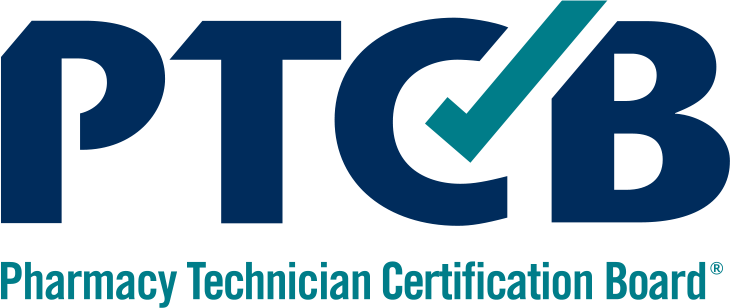 “I am a Medication Reconciliation Technician (med rec tech) for Flagler Health in St Augustine, Florida. The med rec team is comprised of three pharmacy technicians: Sandra Barnes, BS, RPhT, CPhT, Joseph McCormick, AS, RPhT, CPhT, and Anita Farkas, RPhT, CPhT. We are all PTCB certified, and between the three of us have over 50 years experience as pharmacy technicians.
“I am a Medication Reconciliation Technician (med rec tech) for Flagler Health in St Augustine, Florida. The med rec team is comprised of three pharmacy technicians: Sandra Barnes, BS, RPhT, CPhT, Joseph McCormick, AS, RPhT, CPhT, and Anita Farkas, RPhT, CPhT. We are all PTCB certified, and between the three of us have over 50 years experience as pharmacy technicians.
Our job responsibility is to attempt to obtain the most accurate medication history of current, active medications. We get our information from a great many sources including fill histories from the retail/community pharmacies, doctors’ offices, and medication administration records (MAR). If possible, we conduct interviews with the patients or caregivers to find out last dose information and if the patient has deviated from the way the medication was initially prescribed, we make sure that the prescriber is aware. Ultimately, we relay this information to the practitioners here in the hospital which include the emergency room physicians, nurse practitioners, hospitalists, pharmacists, and the primary care physician (PCP) when possible.
One of the struggles we have faced lately is the ability to interview some patients. If the patient has any signs or symptoms of COVID-19, the patient is triaged to different sections of the Emergency Department. We are now doing a lot of phone interviewing as all of our rooms have phones. This is of course with the assistance of our amazing ER nursing staff, and when possible, the nurse conducts the interview based off of our research. This was initiated by our pharmacy clinical coordinator, Jessica Ogden, PharmD, in our hopes to limit the usage of PPEs and PAPRs and preserve them for the practitioners and nurses. We do however wear a mask at all times in the department and around the hospital to lessen the risk of exposure, and we utilize N95s in our COVID units.
Some of the changes include but are not limited to the risk of exposure to our loved ones at home. In order to lessen or mitigate exposure, we remove our shoes before entering our houses and change in our garages so not to risk bringing anything into our homes. We even disrobe differently in that we need to be cognitive on how we remove our clothes not to expose our faces and other parts of our body. We then must shower upon entering our houses. To say that this has changed our whole outlook on exposure and the risks associated is an understatement.
In the beginning and upon our initial exposures to COVID-19 positive patients, we were tested and then made to wear N95 masks all day long until our tests came back negative. This was in the beginning when we all were trying to come to terms with our new norms. So glad we aren’t going through those uncomfortable swabbing tests but rather just practice universal precautions to limit risks of exposure. We look forward to having serological testing available to find out if we had been, at some point, exposed.
With the three of us, we still manage to have 80-90% of our admitted patients’ medication histories completed!!
We also assist our Emergency Room pharmacist with medication histories of our critical, emergent patients that enter the emergency room via ambulance/EMS as coding patients, possible stroke patients, seizing patients, and those with altered mental status. We work to find out blood thinner histories, certain hypertensive medications like beta blockers, and other pertinent medications in order to assist the pharmacist so they can then help the Emergency Room physicians make those rapid decisions on the regimen of care the patient is to receive.
 We have lived through and struggled with the fact that we may become exposed, and with time, the med recs have relaxed into what is perhaps our new standards. We have an awesome employee health department who has set things up for employees to relax and de-stress. The public, on occasion, sends food in for the ED, and we love seeing all those supportive signs thanking the first responders. I wish sometimes that pharmacy services were listed but I ultimately know that what we do DOES make a difference.
We have lived through and struggled with the fact that we may become exposed, and with time, the med recs have relaxed into what is perhaps our new standards. We have an awesome employee health department who has set things up for employees to relax and de-stress. The public, on occasion, sends food in for the ED, and we love seeing all those supportive signs thanking the first responders. I wish sometimes that pharmacy services were listed but I ultimately know that what we do DOES make a difference.
We reduce the amount of medication errors and ultimately increase patient’s safety. Not all hospitals in Florida have medication reconciliation technicians but they should!!! This is a way for pharmacy technicians to advance their roles and to assist in the overall outcome of the patient.
Being acknowledged by the practitioners, pharmacists, and nurses as a part of the team and knowing that a PHARMACY TECHNICIAN is making a difference to a patient’s outcome is the best feeling EVER!!!”
-Sandra Barnes, CPhT
Medication Reconciliation Technician, Flagler Hospital, St Augustine, FL
